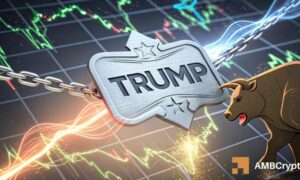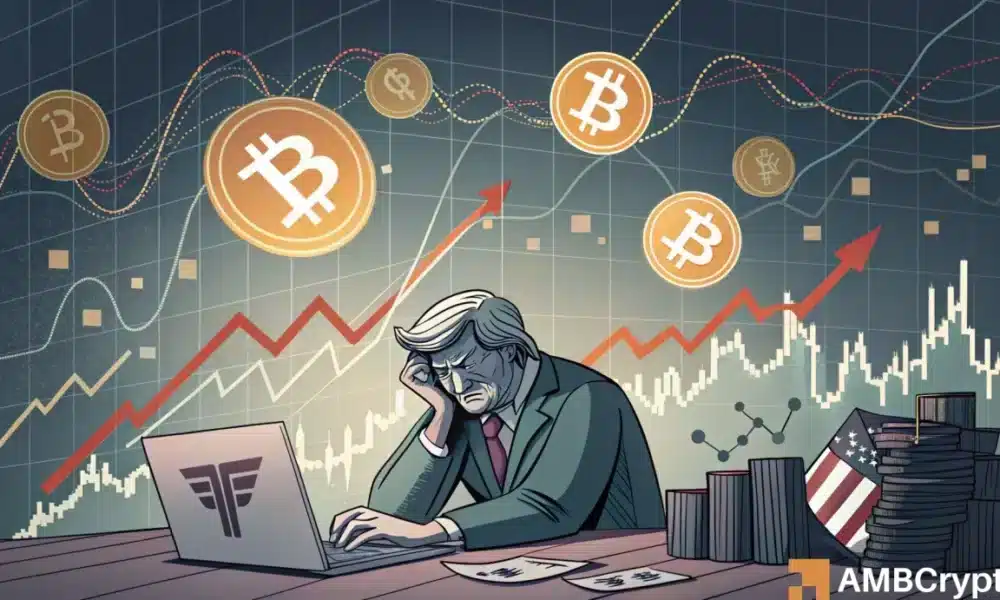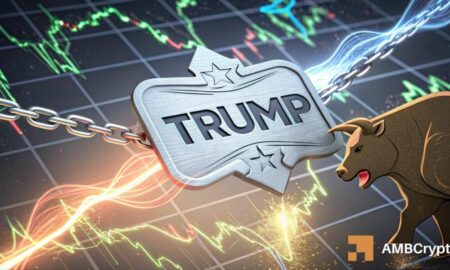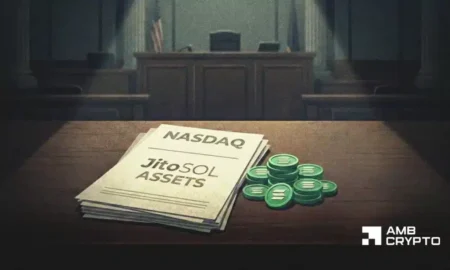Trump’s New Tariffs and Crypto Volatility: An Overview
In recent days, the cryptocurrency market has experienced significant volatility, largely spurred by former President Donald Trump’s announcement of aggressive new global tariffs. These tariffs impose a minimum duty of 10% on all imports, with inflated rates targeting major trading partners such as China (34%), Japan (24%), and the European Union (20%). As the markets reacted to these geopolitical tensions, Bitcoin (BTC) plummeted from $88,500 to $83,500, and Ethereum (ETH) fell below the $1,800 mark. While this shockwave created challenges for investors, a glimmer of hope emerged as the global crypto market cap nudged upward by 0.86%, collectively reaching approximately $2.7 trillion over 24 hours.
Institutional Interest in Crypto: Fidelity’s New Solana ETF
Amid this uncertainty, Fidelity Investments has further positioned itself at the forefront of the digital asset space with the approval of its Solana ETF by the U.S. Securities and Exchange Commission (SEC). This ETF, designed to hold physical Solana and stake a portion of its assets through third-party validators, highlights Fidelity’s commitment to cryptocurrency investment vehicles. The fund will be listed under Cboe BZX Rule 14.11(e)(4), which governs Commodity-Based Trust Shares, with FD Funds Management LLC, a Fidelity affiliate, sponsoring the initiative. This development comes right on the heels of an upward stabilization for Solana, which recently registered modest gains despite earlier price drops triggered by Trump’s tariff announcement.
Market Sentiment and Predictions for Altcoin ETFs
The approval of Fidelity’s Solana ETF has driven upbeat sentiments across social media platforms, with users expressing bullish optimism for the emerging Solana fund. Analysts continue to speculate that this momentum could extend to other altcoin ETFs awaiting SEC approval. Data from Polymarket indicates an increasing probability that ETFs linked to assets like Ripple (XRP), Dogecoin (DOGE), and Litecoin (LTC) will soon gain similar approval. This insight reflects an overall growing confidence in the future of altcoin ETFs and a surge in institutional interest towards cryptocurrencies, which could reshape the market landscape.
Regulatory Changes and the Future of Crypto Oversight
As Fidelity embarks on expanding its crypto offerings—including a new crypto-focused Individual Retirement Account (IRA)—the broader regulatory environment remains in flux. The Senate Banking Committee recently voted to confirm Trump’s nominee Paul Atkins as chair of the SEC. This appointment indicates a potential shift in how digital assets may be regulated. Atkins has committed to prioritizing crypto regulations; however, skepticism lingers, particularly from political figures such as Senator Elizabeth Warren, who has raised concerns regarding his past affiliations with firms like FTX. These regulatory shifts could lead to stricter oversight or encourage innovation in the crypto realm, impacting how institutions interact with digital assets.
The Dual Nature of Market Reactions: Tariffs and Institutional Adoption
The interplay between Trump’s tariffs and institutional actions—like Fidelity’s Solana ETF launch—illustrates the dual nature of current market responses. On one hand, geopolitical shifts induce immediate price adjustments in cryptocurrencies, leading to abrupt sell-offs. On the other hand, institutional adoption signifies resilience in the realm of digital assets. Investors are encouraged by Fidelity’s initiatives, which not only broaden the scope of cryptocurrency investment tools but also imply a long-term commitment to the asset class amidst political turbulence. This juxtaposition highlights the potential for recovery even in volatile markets if institutional infrastructure continues to expand.
Conclusion: Navigating the Future of Crypto Investments
In summary, the cryptocurrency landscape remains dynamic, influenced heavily by geopolitical events and shifting regulatory frameworks. As Trump’s tariffs have caused short-term disruptions, Fidelity’s ambitious strides in launching a Solana ETF and expanding its crypto initiatives signify a lack of retreat from the digital asset space among institutional players. Market participants would be prudent to stay informed about ongoing regulatory changes and their implications for digital currencies. While volatility remains a certainty, the institutional commitment to crypto investment hints at a more stable future, encouraging both traditional and new investors to engage with this evolving financial arena. Such developments may ultimately construct a more robust framework for cryptocurrencies, allowing them to navigate and withstand geopolitical and economic challenges ahead.
















